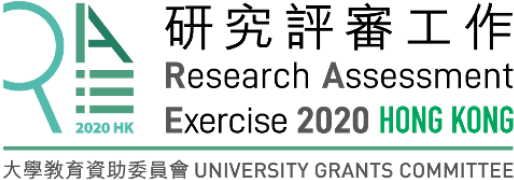Unit of Assessment:
Case Study
Manufacturing Methods and Materials for Paper-based Packaging Solutions (M3PPS)
1. Summary of the impact
Plastic food packaging material is posing serious environmental and social concerns. New classes of environmentally friendly, sustainable and cost-effective functional paper-based materials are urgently needed. A green composite material based on bagasse fibers, which is a by-product from sugarcane industry was developed and demonstrated gas-, heat-, oil- resistant, and 100% biodegradable within the soil. Over HK$ 5 million has been obtained from the government and industry to build an industrial ecosystem solution. A start-up company “Ecoinno (H.K.) Limited” has experienced significant expansion, starting from 2 founders to 12 full-time staff, employing 8 local university graduates, and other top tier talents with a strong industrial background (details of sales agreement can be found from ecoinno supporting letter.
2. Underpinning research
The following City University staff co-lead this research during the periods indicated:
- Prof. Robert Kwok-yiu LI, Associate Dean of Chow Yei Ching School of Graduate Studies, Department of Materials Science and Engineering. (2015 -Present)
The following research staff and students contributed to this activity:
- Post-doctoral Research Associate: Hui Qian (as Project Manager, 2016-2018)
- PhD Student: Qiuhong Li (2016-2017)
- Research Assistant: Song Gao (2016), Rachael Wai Ying Wu (2016), Kangqiang He (2016, 2018), Xihu Wu (2016-2017), Chiu Shuk Wang (2017), Weiran Wang (2017), William Leonard (2017-2018).
The following staff in a university outside Hong Kong, University of Vienna co-lead this research during the periods indicated:
- Prof. Alexander BISMARCK, Head of Institute of Materials Chemistry, Faculty of Chemistry, University of Vienna. (2012-Present)
The impact is enabled by research undertaken at the City University of Hong Kong and the University of Vienna from November 2015 to Feb 2018. Hierarchical fiber preforms comprising micro- and nano- fibrillated bagasse fibers forming a composite structure was developed. This has led to the development of a series of paper-based products that are mechanically robust and gas-impermeable, namely microwaveable food containers and coffee capsules. Key elements of the underpinning research include:
- Manufacturing protocol for nano-/micro-fibrillated cellulose (MFC/NFC) had been optimized. Mechanically robust fibrillated cellulose were obtained by reducing the production time up to six times compared to the traditional protocols, providing a cost-efficient way for future scale- up.
- MFC/NFC-enhanced paper preforms with different structures, such as mixture, coating, lamination, had been successfully fabricated. Significant improvement of mechanical and barrier properties had been proved. Moreover, novel fabrication of paper preforms had been developed, which could shorten the filtration time while remaining the properties.
- Composites based on MFC/NFC-enhanced paper preform and renewable polymer had been fabricated and their protential as packaging materials had been explored.
- Successful fabrication of biodegradable, air-impermeable MFC/NFC-based coffee capsules. The capsules were tested in the commercially-available coffee machine.
- Successful fabrication of MFC/NFC-based food container demonstrators, which was biodegradable, microwavable, heat-, water- and oil-resistant. The bio-degradability of the MFC/NFC-based materials was proved through a soil test. Preliminary life cycle assessment was performed on the lab-scale production process of NFC-based coffee capsules.
3. References to the research
This research has led to 6 pending patent applications in respective countries, constituting world’s largest economy including US, EP, China, Japan, Australia, and Canada. [1] Additionally, it has enabled Ecoinno (H.K.) Limited in HK Science Park being granted with second funding from the Hong Kong Government controlled Innovation and Technology Commission, Enterprise Support Scheme (ESS), amounting to HKD 14.8 million for the development and commercialization of 100% biodegradable and gas-impermeable coffee capsule. Further, Ecoinno (H.K.) Limited has recently been awarded with a third funding from the Hong Kong Government initiated public corporation, Hong Kong Science and Technology Parks Corporation (HKSTP), amounting over HKD 80 million to build in 2021, an Industrial 4.0 Advance GCM Pulp and Molding Plant at Advanced Manufacturing Centre (AMC), Tseung Kwan O Industrial Estate.
Key References:
[1] Chen, G., Lee, Koon-Yang, Bismarck, A. and Li, R., Ecoinno (H.K.) Ltd, 2019. Cellulose materials and methods of making and using same. U.S. Patent Application 16/079,463.
4. Details of the impact
Context: Plastic waste is persistent in environment and polluting the earth; 50% of them comes from packaging materials. Innovative packaging materials designed with sustainable ecosystem in mind is in great demand. Cellulose, a naturally occurring biopolymer, is know to biodegrade completely in nature, emitting only carbon dioxide, water, and biomass to sustain the environment. City University of Hong Kong has joined with University of Vienna and conducted research in cellulose material and successfully developed a cellulose fiber based green composite materials (GCM). This disruptive material has been exploited for multiple packaging applications, spanning from food packaging, gas-impermeable capsule, cosmetic packaging, industrial packaging, and hospital disposal.
Pathways to Impact: The research described here has led to the development of a new class innovative packaging material using green composite material (GCM). Essential to the mechanical and barrier properties is the control of the hierarchical fiber preforms comprising micro- and nano- fibrillated bagasse fibers forming the composite structure. Join work between City University of Hong Kong and University of Vienna has revealed the critical combinations of cellulose fibers and their resulted complex interaction among the vast spectrum of fibrillated fibers. These works have elucidated the mechanism for GCM formulation and optimization, resulted in development of various grades of GCM of different characteristics and associated operational properties, such as tensile strength, gas permeability, temperature tolerance range, enabling the GCM manipulation for different applications. Finally, this new class of green composite material is used to produce sustainable and cost-effective functional packaging materials
Reach and Significance
Impact on Ecoinno (H.K) Limited. The outcome of this research has enabled Ecoinno to experience a vast expansion over the year, starting from 2018 to date. Ecoinno (H.K.) Limited has set up two labs in HK Science Park, to continue the R&D on the GCM based material formulation, products and applications, automated processes, and development of A.I. for GCM processes. In 2018, Ecoinno was granted funding from the Hong Kong Government controlled Innovation and Technology Commission, Enterprise Support Scheme (ESS), amounting to HKD 14.8 million for the development and commercialization of 100% biodegradable and gas-impermeable coffee capsule. Further, Ecoinno (H.K.) Limited has recently been awarded another funding from the Hong Kong Government initiated public corporation, Hong Kong Science and Technology Parks Corporation (HKSTP), amounting over HKD 80 million to build an Industrial 4.0 Advance GCM Pulp and Molding Plant at Advanced Manufacturing Centre (AMC), Tseung Kwan O Industrial Estate in 2021.
Impact on the conventional paper printing company. Ecoinno has engaged by Hung Hing Printing Group, one of the largest and most respected in Asia, to set up the first GCM based Advance Pulp Molding Plant in HKSTP administrated Tai Po Industrial Estate, amounting HKD 30 million. This plant is designed with 8 full-scale robotic production lines, producing multiple categories of GCM based products, including high function food container and gas-impermeable coffee capsules, serving food industry and capsule-based product manufacturers throughout the world.
Impact on the underprivileged community. The research team at Hong Kong Science Parks Corporation has been in contact with Hong Kong's largest food rescue organization-FoodAngel to try our GCM container, replacing the polypropylene (PP) food container. The feedback from the trial run was positive and currently, FoodAngel is engaging Ecoinno to set up a trial run using Public Sector Trial Scheme (PSTS).
Impact on Cathay Pacific Catering Services (CPCS). The client has been suffering from high operation costs in dealing with plastic utensils and unprocessable food waste due to high plastic impurities from the food packaging material. Our 100% biodegradable GCM product enables the diversion of inflight food waste from landfill to Hong Kong Government built organic waste treatment facility, OPark · 1 in Siu Ho Wan, and also helps the government to relieve the pressure on landfill substantially.
Impact on the capsule product manufacturer. The disruptive GCM coffee capsule is well-suited to reduce the generation of enormous waste in the capsule-based beverage industry. While most of the ground coffee is packed in aluminum or polypropylene made capsule and required tremendous resources to separate, clean, and recycle, the 100% biodegradable GCM capsule avoids the generation of such waste. Preventing the generation of aluminum and plastic waste that remains challenging to recycle. A letter of intent from Caffe Vergnano and Lavazza.
5. Sources to corroborate the impact
[A] Supporting letter from FoodAngel confirming their intention to set up a trial run with Ecoinno to develop freezing to heating resistance food containers using Public Sector Trial Scheme (PSTS).
[B] Email from Cathay Pacific Catering Services (CPCS) engaging Ecoinno to pitch and customize a highly functional and compostable inflight meal container to replace the existing meal sets.
Community and Outreach:
[A] Announcement of Ecoinno (H.K.) Limited to pitch in the Grand Finale of Jumpstarter 2020, organized by Alibaba Entrepreneurship fund https://www.jumpstarter.hk/sc/location/hongkong-regional
[B] The incorporation of Ecoinno’s GCM based industrial ecosystem solution in One Ocean Foundation’s Business for Ocean Sustainability report. In this report. GCM solution is included in the main groups of technological innovation that can bring major benefits to marine and coastal sustainability. https://www.1ocean.org/business_for_ocean_sustainability/

